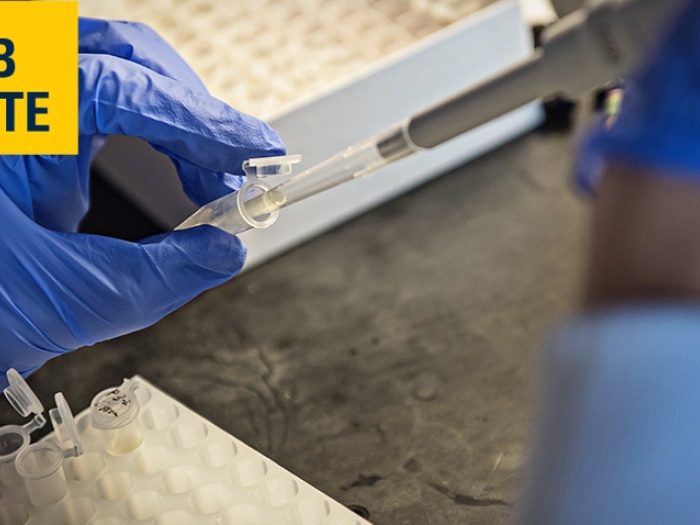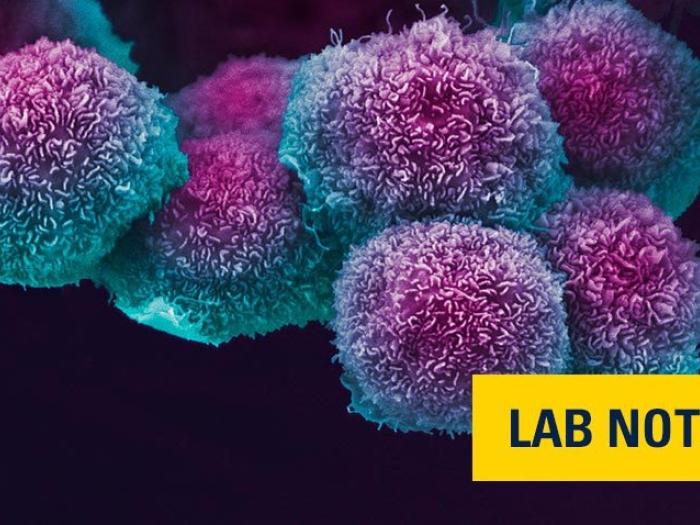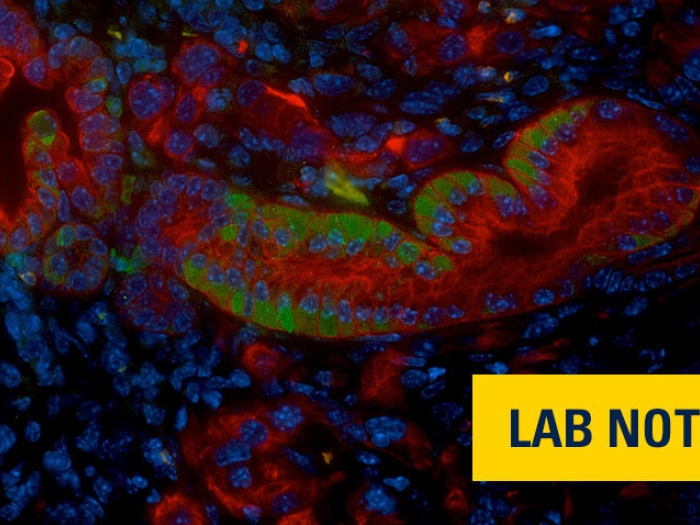The protein Argonaute 2 was found to be critical to the progression from benign lesions into pancreatic cancer, suggesting a therapeutic opportunity.
3:35 PM
Author |

Researchers at the University of Michigan Rogel Cancer Center have identified a protein — Argonaute 2 — that appears to be critical for the progression of benign precursor lesions into pancreatic cancer.
Argonaute 2 interacts with K-RAS, which helps relay signals from the outside of a cell to its nucleus. Mutations in the KRAS gene drive more than 90% of pancreatic cancers, and currently there are no therapies that target these mutations.
Based on their findings, which appear in Nature Communications, the researchers believe developing drugs that target this interaction could present a much needed opportunity to treat pancreatic cancer — the five-year survival rate for which still hovers around 10%.
Working with two genetically engineered mouse models of pancreatic cancer, the diverse team of researchers found mice who lacked Argonaute 2 developed precursor lesions, but the lesions didn't develop further into lethal pancreatic ductal adenocarcinoma, the most common type of pancreatic cancer. The study also defined mechanisms that regulate the KRAS-AGO2 interaction.
"Our study supports a two-phase model of pancreatic cancer development. First, the development of the benign lesions which does not require Argonaute 2, and second, the transformation of the lesions into pancreatic cancer, which does require it," says study co-first author Sunita Shankar, Ph.D., a postdoctoral research fellow in the Michigan Center for Translational Pathology. "We are optimistic that targeting this interaction between K-RAS and Argonaute 2 could provide a therapeutic opportunity to stall or prevent the development of pancreatic cancer."
The senior author of the study was Arul Chinnaiyan, M.D., Ph.D., director of the Michigan Center for Translational Pathology and S.P. Hicks Endowed Professor of Pathology at Michigan Medicine.
Paper cited: "An Essential Role for Argonaute 2 in EGFR-KRAS Signaling in Pancreatic Cancer Development," Nature Communications. DOI: 10.1038/s41467-020-16309-2

Explore a variety of healthcare news & stories by visiting the Health Lab home page for more articles.

Department of Communication at Michigan Medicine
Want top health & research news weekly? Sign up for Health Lab’s newsletters today!





